
Fishkeeping has experienced a lot of progress throughout the past 20 years. We take a look at the innovations and changes that have affected the hobby in the last couple decades, as well as look forward to the next 20 years and examine some of the changes we might like to see in the future. And who better to give their opinions on the hobby than our very own experts? We asked Aquarium USA writers to give their input not only on the last 20 years but what they hope to see in the future, as well.
Product innovation is at the heart of the hobby’s progress. Manufacturers now make more products and food available that cater to the needs of specific animals and setups than ever before. Bob Goemans, author and creator of Saltcorner.com, mentions this specifically regarding food, citing that new products are promoted that are very much made for the metabolic needs of a certain animal. FishChannel.com columnist David Lass jumps on the food bandwagon, as well, mentioning that many fish that were difficult to feed in the past can now have a good diet in our aquaria.
Another area that has benefitted from manufacturers looking at the needs of specific plants and animals is lighting. Both the planted tank and reefkeeping sides of the hobby are growing — and this is largely due to lighting advances. FishChannel.com contributor Mike Wickham said that on the planted-tank side, proper lighting systems allow aquarists to have a "lush growth of gorgeous live aquatic plants” rather than only plastic plants. Lighting also allows aquarists to be able to both keep and propagate corals. "It’s so much better to have a dynamic display — one that changes every month because the plants or corals are growing,” Wickham said.
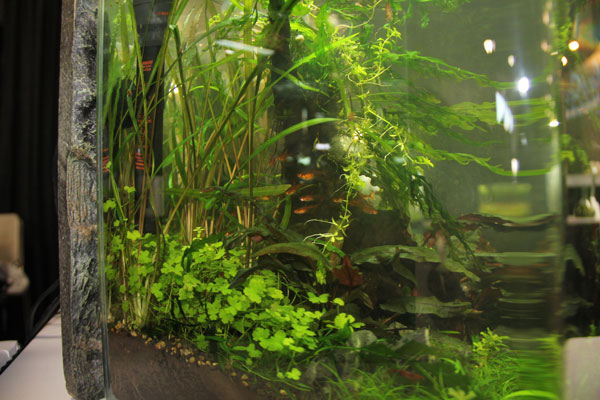
Several of our writers — nearly all the ones we talked to, in fact — gave credit to LED lights as being the biggest innovation in the last 20 years. It’s tough to argue with that. LEDs last a long time, give off very little heat and use less electricity. If you’re familiar with LED lights, you probably know already that the only downside is that you cannot simply replace one bulb — if one of the lights has a problem, the whole lighting fixture must be replaced. This has not deterred many hobbyists from believing that LEDs are the next big thing in aquariumkeeping. Lass goes so far as to say that someday, "LEDs are all we will be using.” It will be interesting to see if that does indeed happen.
Even more items are worth talking about that we’ve seen in the past couple decades — a grouping of various helpful inventions and changes in our hobby. Lass and FishChannel.com contributor Stephen G. Noble give credit to live starter bacteria and increased awareness of the nitrogen cycle, respectively.
Other advances seem to still be in a state of transition: They are not quite what we consider to be widespread but are gaining in popularity and may eventually become huge for aquarists. Aquaculture of marine animals is one of the biggest parts of aquariumkeeping that many people would like to see grow in the future. While many freshwater fish are already being raised on fish farms, the hope is that many more saltwater animals we keep will be captive-bred, rather than collected from the wild. Captive-bred animals acclimate much better to our aquariums and are generally easier to feed than wild-caught animals. "It would be nice to get to a point where fish and invertebrates were not collected from the wild for this hobby,” said Jeff Howe, FishChannel.com contributor.
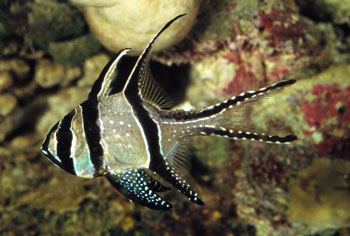
One potential area for growth would be the arena of naturally lit planted tanks. "It was used in the early days of aquariumkeeping but was replaced by electric lighting. Now research has proven its effectiveness,” Noble said. Though not a lot of people keep naturally lit tanks, they do offer the benefit of not using any electricity — and they can look amazing.
Then there’s the matten filter. Although matten filters have been used in Europe for quite a while, they are not often used in aquariums in the United States. Many hobbyists may never have heard of one before and are wondering what a matten filter even is.
"Essentially, it’s taken the best of the sponge filter and the undergravel filter and combined them to make a single super filter,” said Mike Hellweg, FishChannel.com contributor. And who wouldn’t like the idea of a "super filter”? Using this type of filter could also be a growing trend.
It may not be as obvious as the changes brought about by product innovation, but the way we live overall has also gradually affected how we care for our fish tanks. The Internet has been praised for a lot of triumphs and blamed for a lot of problems in various areas, including fishkeeping. Information about the hobby is easy to find, making it simple to find out how to care for your animals or how to treat them when they’re sick. But that information is not always reliable.
Hellweg makes a lot of important points about the Internet.
"Nothing posted on the Internet, outside of a few mainline sites, has any sort of editorial review, so rumor and outright false information can unknowingly get passed along as fact.” He goes on to say that, sadly, many aquarists have left the hobby because they get started with the wrong information.
However, the Internet does have benefits, and not only for those seeking information on their favorite species. An example from Hellweg illustrates this:
"I’ve got a friend who regularly travels throughout Africa and Asia,” Hellweg said. "When he gets a chance, he visits with the local fishermen to find out what is being caught locally. He can take a photo with his phone and send it to me instantly. With just a smartphone, he can access the Internet, identify the fish in the field and preserve its picture, along with the GPS coordinates of exactly where it was caught.”
Sharing information in this way is just one example of how the Internet and technology have helped the hobby. Another form of information-sharing comes in the form of forums. Fishkeeping forums can be a great place to get advice on problems you need to solve or to run the idea for your next aquatic setup by fellow fishkeepers. If you have a circle of trusted forum friends who are knowledgeable about fish, you can definitely benefit.
Looking at what we have gained helps give us some perspective about the past — but what about where we are going? Everyone has a wish list. Here’s a list of just a few of the innovations our experts would like to see forthcoming.
Technology and information have contributed a lot to the past 20 years of the hobby — and they will continue to do so. But consider where your own hobby is headed. If you enjoy more natural methods of fishkeeping — such as the naturally lit planted tanks or unfiltered aquariums — that’s where your fishkeeping path should go. Technology gives us tools, but it’s up to you whether you want to use them.
And of course, for those who thrive on the technological advances, it looks like you’ve got a lot to look forward to. Not only do we already have great products like LED lighting available, but look at all the future possibilities! Remember that the hobby is about your aquatic animals and how you can best care for and enjoy them — the rest will take care of itself.
When we asked our writers for their wish list of future hobby innovations, we also encouraged them to give us some fun science-fiction-type ideas. Then we figured that our readers should join in on the fun, so we asked our Facebook followers to give their input. So what did our writers and Facebook followers imagine in a science-fiction realm of fishkeeping?
"A fully controllable submarinelike micro-camera about the size of a grain of rice. Tiny hairlike feelers will provide direction control and prevent the device from being ingested into filtration, should control be lost. Live images can be projected to TV sets or computer screens.” — Stephen G. Noble
"Aquarium stands that have no base. The aquarium seemingly floats in the room and can easily be moved to relocate the tank closer to a water source for maintenance or to simply rearrange the room for a fresher look. Power is provided by a super-powerful battery.” — Stephen G. Noble
"I desire deep-sea fish supporting aquariums. I want an aquarium of hatchetfish like you’ve no idea.” — RJ Yarrish
"I would like to see complete all-in-one systems with a built-in natural, biological filtration chamber. These aquarium systems would have algae refugiums as the background chamber behind the display section of the aquarium. The refugiums would have 24-hour or night-light cycle that did not shine into the display section. It would have two separate and removable trays to alternate the substrate.” — A. Colin Flood
"An aquarium that is 100 percent self-sustainable.” — Andrew Huh
"Would be awesome if they could build some device that could read nitrates, nitrites, ammonia and etc. Even read and regulate the pH and hardness of the water.” — Christian Geronzin
"Modern metaframe tanks; I love the look of them.” — Kailonna Crawford
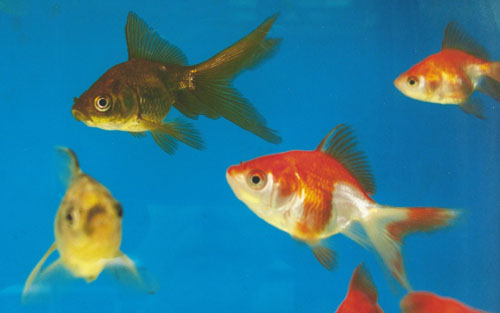 Aquarium Water Chemistry for Goldfish
If you survey a group of aquarists, certainly a large portio
Aquarium Water Chemistry for Goldfish
If you survey a group of aquarists, certainly a large portio
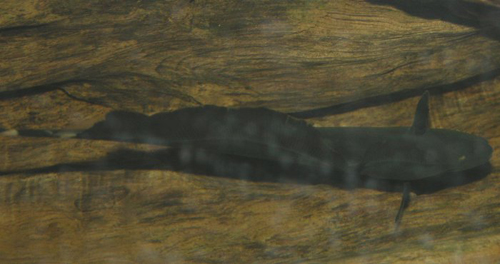 Choosing a Knifefish For Your Aquarium
The array of adaptations that have evolved in fish has resul
Choosing a Knifefish For Your Aquarium
The array of adaptations that have evolved in fish has resul
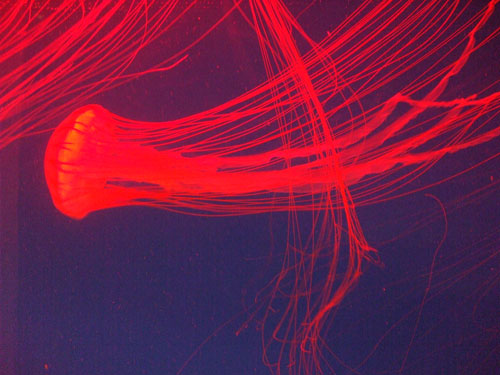 Proper Aquarium Lighting for your Aquarium Application
Lighting, just like filtration and heating, is an essential
Proper Aquarium Lighting for your Aquarium Application
Lighting, just like filtration and heating, is an essential
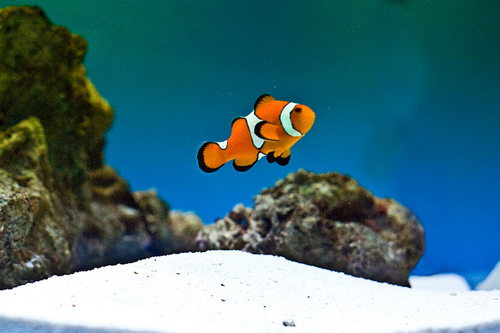 How to Set Up a Fish Tank
As with many things in life, one person’s definition of idea
How to Set Up a Fish Tank
As with many things in life, one person’s definition of idea
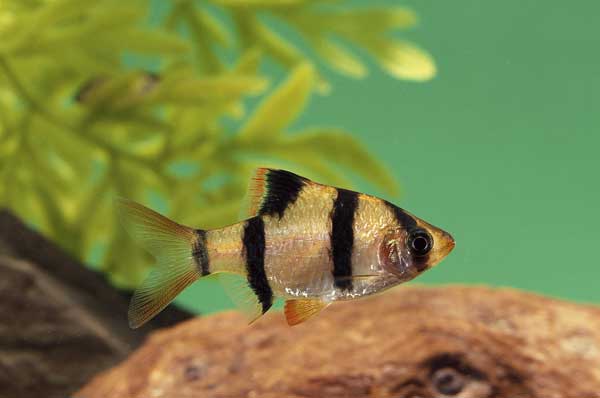 5 Great Freshwater Aquarium Fish
You have your aquarium all set up. The filter has been on fo
5 Great Freshwater Aquarium Fish
You have your aquarium all set up. The filter has been on fo
Copyright © 2005-2016 Pet Information All Rights Reserved
Contact us: www162date@outlook.com